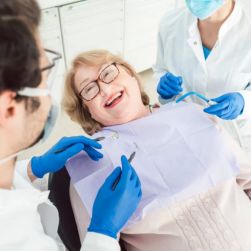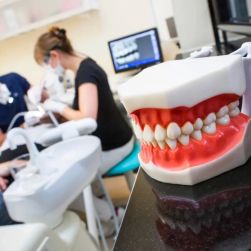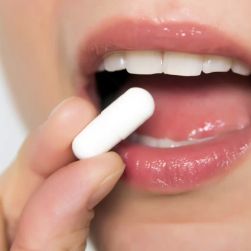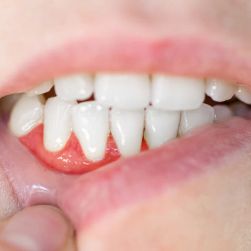What To Do If You Get an Infection After Dental Surgery: A Personal Guide
Having dental surgery is a big step toward better oral health, but it also comes with its challenges. One of the most common concerns after a dental procedure is the risk of developing an infection. In this guide, I’ll walk you through my personal experience and provide insights into what you should do if you suspect you have an infection following dental surgery.
Recognizing the Signs of Infection
It all started a few days after my wisdom teeth extraction. I was feeling fine at first, following all the post-surgery instructions to the letter. However, I began noticing some unusual symptoms. My jaw was more swollen than expected, and I felt a constant throbbing pain that wasn’t getting better with painkillers. I realized something might be wrong, and after talking to my dentist, I confirmed that it could be a sign of infection.
Infections after dental surgery are not uncommon, but they can become serious if left untreated. Here are some of the symptoms to watch out for:
- Swelling or redness around the surgical site that worsens over time
- Pain that doesn’t subside with over-the-counter medication
- Fever, which may indicate a bacterial infection
- Pus or an unpleasant taste in the mouth
- Difficulty opening your mouth or swallowing
Immediate Steps to Take If You Suspect an Infection
Once I realized something wasn’t right, I didn’t panic. It’s important to stay calm and follow these steps if you think you have an infection:
- Contact your dentist immediately: The first thing I did was call my dentist. They were able to assess my situation and offered guidance. It’s crucial to reach out to your healthcare provider early to avoid complications.
- Follow their instructions: After my dentist confirmed it could be an infection, they recommended I come in for an examination. Based on the diagnosis, I was prescribed antibiotics to treat the infection.
- Keep the surgical site clean: Keeping the area around the surgery site clean is critical to preventing further infection. Gently rinse with saltwater as advised by your dentist. I made sure to avoid disturbing the area with food or using any hard objects like toothpicks.
- Take antibiotics as prescribed: Don’t skip doses of your antibiotics. I followed the regimen exactly as my dentist instructed. Infections can worsen if you stop taking your medication early, even if you start feeling better.
Dealing with Pain and Discomfort
In addition to the infection, I was also dealing with significant discomfort. Pain is common after surgery, but when it’s accompanied by infection, it can feel unbearable. Here’s what helped me manage the pain:
- Taking prescribed pain medications on time to prevent the pain from getting worse
- Applying a cold compress to reduce swelling and numb the area
- Eating soft foods and avoiding chewing on the side of the surgery
- Resting as much as possible to help my body heal faster
When to Seek Additional Medical Help
Although I was following the treatment plan, there were moments when I wondered if I should seek additional medical attention. If you notice that your symptoms aren’t improving or if they’re worsening despite following your dentist's advice, it's essential to seek help again. Some signs that you may need further intervention include:
- A significant increase in pain, especially if it becomes sharp and unrelenting
- A high fever that doesn’t go away
- Excessive swelling that doesn’t subside
- Difficulty breathing or swallowing
The Importance of Follow-up Appointments
During my recovery, I had follow-up appointments with my dentist to monitor the healing process. These checkups are crucial in ensuring that the infection is fully treated and that no complications arise. If your dentist recommends follow-up visits, be sure to attend them. In my case, a follow-up exam confirmed that the infection had been cleared up successfully, and I was on my way to a full recovery.
Preventing Infections After Future Dental Surgeries
After my experience, I’ve learned a lot about the importance of post-surgical care. Here are some tips to prevent infections in the future:
- Always follow your dentist’s post-surgical instructions carefully
- Take prescribed medications exactly as directed
- Keep the surgery site clean and avoid touching it unnecessarily
- Avoid smoking or using tobacco products, which can interfere with healing
- Eat soft, non-irritating foods to avoid aggravating the surgical site
Dental surgery can be daunting, but understanding what to do in case of an infection can help ease your mind. If you’re ever in doubt, remember that your dentist is there to guide you through the process. Staying proactive, seeking help early, and following your recovery instructions will ensure the best outcome for your health.






